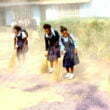WE cannot run away from the fact that these young people, regardless of whether we like it or not, are going to have sex, says Save the Children Zambia.
And Save the Children says the lockdown period where schools were on recess following the Coronavirus pandemic led to a rise in the number of teenage pregnancies across the country.
Speaking when the organisation made a submission to the Parliamentary Committee on Youth, Sport and Child Matters over sexual reproductive health and rights of children and young people in Zambia, Save the Children Zambia child rights governance technical specialist Mary Chavula said most stakeholders commenting on the issue of comprehensive sexuality were merely making assumptions and did not know the reality of what pupils were learning.
“A lot of people don’t know what is happening; there is a lot of insinuation around what is actually being taught. But the reality is we have had these young people, who have actually experienced it and what it has done and also just to weigh in on the example that we gave, the numbers of children that fell pregnant during the lockdown when children were not in school actually increased because they are with their parents, their parents are not able to teach them comprehensive sexuality,” Chavula said. “We cannot run away from the fact that these young people, regardless of whether we like it or not, they are going to have sex, they are going to discuss these things and it’s something that we need, and as a government, having it within the Ministry of Health and the Ministry of Education helps these young people, who are under this Ministry to be able to learn from these teachers who are trained. But otherwise, children were with their parents, we saw the numbers, we saw a lot of parents are not even able to talk to their children about comprehensive sexuality because of taboo, saying, ‘no, I can’t talk to my child’.”
She said action needed to be taken to ensure children were adequately taught on sexuality.
“…there is so much negative information, which is on the Internet, which they can get on and they can easily use it and it will end up harming them and exposing them to Sexually Transmitted Diseases (STDs) and also just some behaviours that will affect their lives,” Chavula said. “So, why not adopt it in a cultural context and in the context of Zambia and what is appropriate? So, it’s not something that has been picked now as it is, as it has been where it came from these Western countries, but it had to be consultative and we are glad as Save the Children, we supported that process and we were part of the consultation process that was going on, I think early 2010/2011 when a lot of organisations, including the government itself, was participating.”
And Chavula disclosed that Choma District recorded a dramatic rise in the number of teenage pregnancies during the lockdown period when schools were on recess.
She outlined that the rise in pregnancies was mainly attributed to a lack of comprehensive sexuality education at home.
“We have had a number of pregnancies. Eastern Province was actually leading, same with Southern Province, Choma, specifically, where when monitoring, we found a number of cases that increased, children were being abused in the homes,” said Chavula. “But I believe if they were in schools, they would say, ‘this is what I am being exposed to…’ So, we should not run away as lawmakers that this is not going to happen. It is happening and young people are being exposed to a lot of negative things over the Internet. And the Internet will not go away so why not embrace it and see how we can work around and come up with a solution?”












